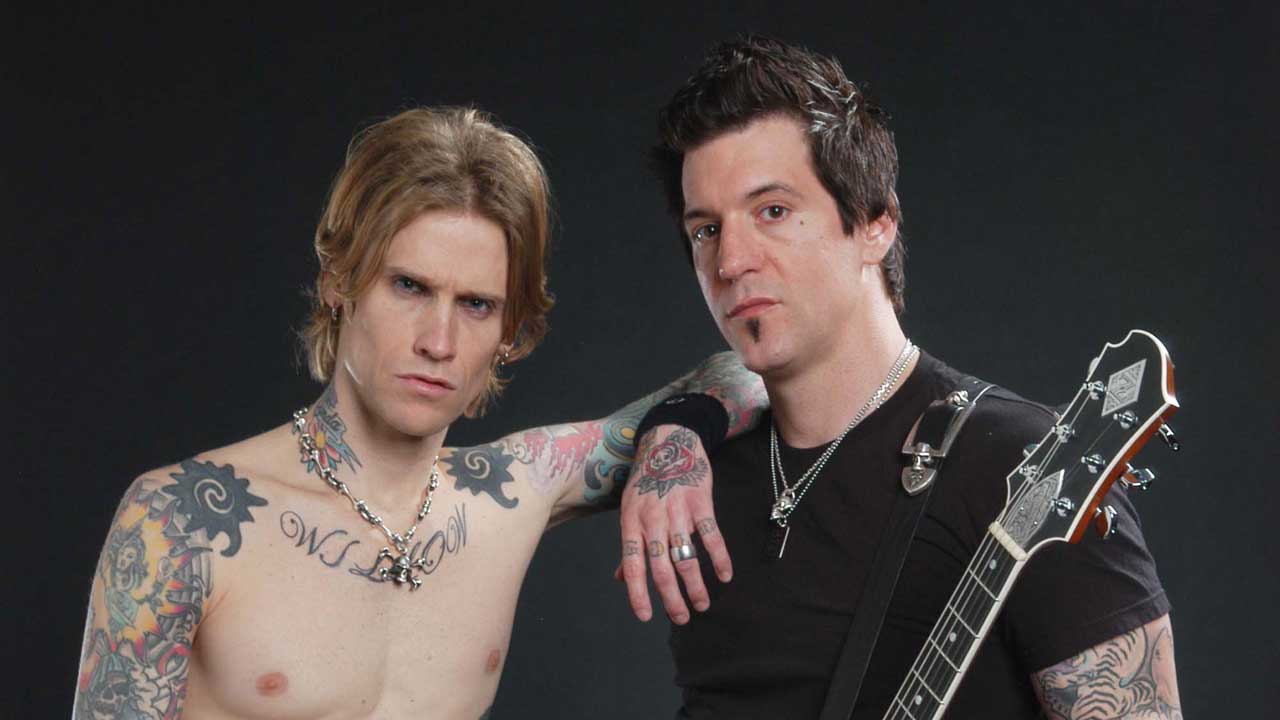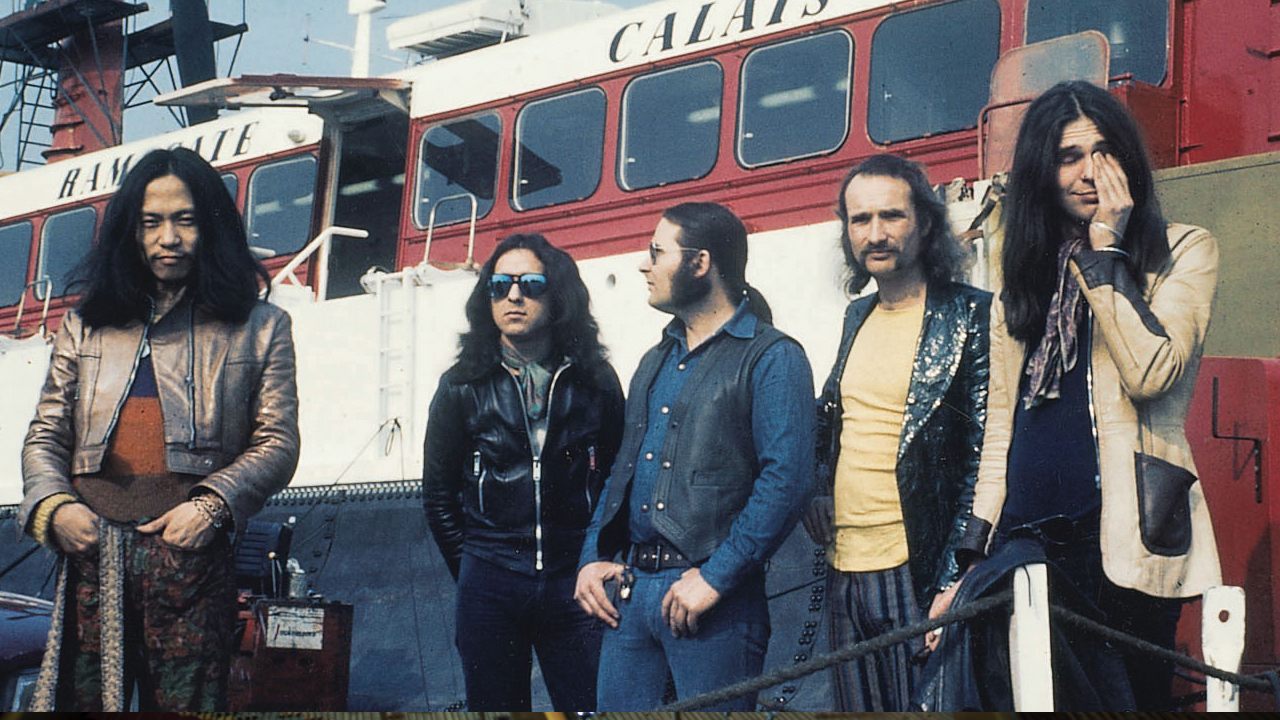"That song will long outlive us. Can't think of a better calling card to leave behind": The Buckcherry song that'll be the band's epitaph
In 2006 Buckcherry released Crazy Bitch. The song title saw the band accused of misogyny, and the video made it a whole lot worse

If you believe the myth and legend, then you’ll think Crazy Bitch was inspired by the infamous Paris Hilton sex tape. We don’t. Because, former Buckcherry guitarist Keith Nelson told is in 2010, it really has nothing to do with La Hilton.
“I don’t even know how her name got attached it in the first place,” he sighed, obviously having heard and dismissed the rumour before. “The song was written at a time when a lot of these things seemed to be happening – you know, sex tapes involving famous people being leaked, and sold on the internet. But it’s got more to do with our ex-girlfriends.
“It was inspired by the type of girls that every rock’n’roller knows only too well. These girls are great in bed, but a nightmare everywhere else. The older you get, the longer that list becomes.”
The song was actually written in 2002. Four years before it appeared on Buckcherry’s 15 album.
“What happened was that Josh [Todd, vocals] phoned me one day and sang these lyrics. Actually he was hoping I’d be out and that he would get my voicemail. I guess Josh was hoping to shock me by leaving this singing message.
“Anyway, I went away and came up with this funky riff, and the next day we met and had the song finished. Like a lot of the best stuff it was done very quickly.”
At the time the song was written, the band appeared to be falling apart. Three members had quit following the release of their 2001 album Time Bomb, and Buckcherry were also without a label – which worked to their advantage.
Sign up below to get the latest from Classic Rock, plus exclusive special offers, direct to your inbox!
“We were down to being a duo for a while,” Nelson recalled. “that meant we just got on with writing songs. And because there was no label breathing down our necks, we had nobody ‘suggesting’ what we should do.”
The band demoed the track, and then thought nothing more of it. Until they went into the studio to record 15.
“We decided to do Crazy Bitch, just so we had it done properly. We weren’t even sure it would go on the album. But eventually it did, and it’s become one of our most popular songs. I guess it’s up there with Lit Up [from 1999’s self-titled debut album] was a genuine Buckcherry anthem – sex and drugs. Works every time."
One thing Nelson was delighted about is the way girls had taken to the song.
“It was never meant to be misogynistic, but that was the way a lot of people saw it when the album came out. But since then I’ve heard that so many women love it, and know all the lyrics.
“Something like that is really gratifying, because it means that females are in on the joke as well. So anyone out there who still thinks we’re sexist? Talk to the girls who go around calling themselves The Crazy Bitch. They understand, even if you don’t.”
Unfortunately, the band did run into serious problems when they shot the video for the song, eventually ending up with a law suit against them.
Here’s Nelson’s explanation of what happened. “At the time, we didn’t have any money. So we decided that the only way to do this video would be to call in some favours and use desperate actresses. So we put up an ad on our MySpace page asking for girls to show up. We stressed that you had to be over 18 and have ID to prove it. We also told them that they could use the video as part of their show reel.
“We went to Key Club in Los Angeles and did it up like a strip club. The video was shot [two versions – the explicit and also the ‘clean’], and that was the end of it. Until the song started to get noticed and the video got airplay.”
At this point a girl – known as Jane Doe for legal reasons – came out of the proverbial woodwork and claimed that she’d been just 16 years old when she appeared in the video. Which meant scenes of her kissing another girl and drinking alcohol, plus other suggestively lewd acts, were definitely unlawful. Litigation duly followed.
“It was ridiculous,” said Nelson. “We did everything we could to ensure that only girls above the legal age got in for the video. And this one admitted she’d falsified her birth certificate and ID, then sued Buckcherry, claiming we forced her to behave in this fashion!”
Everything was settled, but Nelson still felt aggrieved: “It just seems that when a band start to get somewhere through their own hard work, as we had, there’s always somebody ready to try and take a slice of the cake. In a way, though, she is the sort of crazy bitch the song was about, so perhaps we should have expected something like this.”
As a single, Crazy Bitch failed to even tickle the UK chart. In the US it only managed No.59. but it gave the band their first Top 100 single, and started the ball rolling for the million-selling 15. Moreover, Crazy Bitch was nominated for Grammy in the Best Hard Rock Performance category in 2007 (the prize went to Wolfmother for Woman).
“It amazes me how something so simple and easy to write has become so important to our fans,” Nelson laughed. “Still, I suppose it proves that sex sells.”
As for all the ‘fuck’s spread liberally throughout the track, Nelson reckons it’s part of the song’s enduring charm.
“If we’d have been on a label at the time, then I suppose the A&R people would have freaked out and told us: ‘You can’t use such language’. But we were on our own. The radio edit is irritating, but it got the song noticed, and people always want to hear the real version anyway.
“I guess that song will be our epitaph, and long outlive us. Can’t think of a better calling card to leave behind.”
In 2020 Buckcherry's Crazy Bitch was remixed by Floridian rapper Wifisfuneral, who ramped up the profanity. This original version of this feature appeared in Classic Rock 147, published in Summer 2010.
Malcolm Dome had an illustrious and celebrated career which stretched back to working for Record Mirror magazine in the late 70s and Metal Fury in the early 80s before joining Kerrang! at its launch in 1981. His first book, Encyclopedia Metallica, published in 1981, may have been the inspiration for the name of a certain band formed that same year. Dome is also credited with inventing the term "thrash metal" while writing about the Anthrax song Metal Thrashing Mad in 1984. With the launch of Classic Rock magazine in 1998 he became involved with that title, sister magazine Metal Hammer, and was a contributor to Prog magazine since its inception in 2009. He died in 2021.

